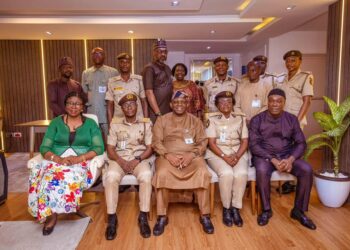The Nigerian National Petroleum Corporation (NNPC) has identified the deplorable conditions of most of the vessels bringing in the Liquefied Petroleum Gas (LPG) otherwise called cooking gas as the main reason why the price of the gas has always been fluctuating and also on the high side. It also explained that the reasons why most of the insurance firms refuse to provide cover for LPG vessels are because most of them are not compliant and also not sea worthy. According to the public affairs manager of the NNPC, Mr. Levi Ajuonuma, the result of this situation is that fewer vessels are left to ferry the gas into the market and that this creates a shortfall in supply and it also leads to the increase in price. Ajuonuma explained to energy correspondents last week that: “most of the ships carrying cooking gas to the Nigerian market are of such low standards and honestly no insurance company wants to touch these kinds of vessels, they are so bad for any form of cover or guarantee” he lamented. Also confirming the fact to Shipping Position Weekly, Alhaji Tafida Tijani, head of marine department of the Pipelines and Products Marketing Company (PPMC) a subsidiary of the NNPC explained that apart from the deplorable conditions of the LPG vessels, there are no adequate facilities to store the products once they are discharged. He acknowledged that the fluctuation in the cost of cooking gas still persist even though the NNPC has made it a priority to give the LPG vessels berthing space even before vessels carrying other products and that even the federal government has decided that a certain percent of the product must be sold to Nigerians by the off- takers. Tafida explained that “the only place we have is the NNPC facilities that have been built in the 1960s, in Nigeria we do not have enough facilities to accommodate the product; even though NIPCO already has one that is built but then, it is still under the NNPC, in Apapa you see terminals like the NOJ and the PWA being used to store aviation kerosene and baseoil instead of LPG”. Speaking further, Tafida lamented the present shipping policies in the country even as he said that the inland shipping Act otherwise known as the Cabotage Act which was introduced into Nigeria seven years ago has not met the objectives for which it was enacted. “This situation is not just on the LPG as a product, it is applicable to all the other products too, our Cabotage is not well developed, our maritime industry is not yet fully developed and this is why you see that the off -takers are trying to make themselves a cartel in this country” he lamented.
















Discussion about this post